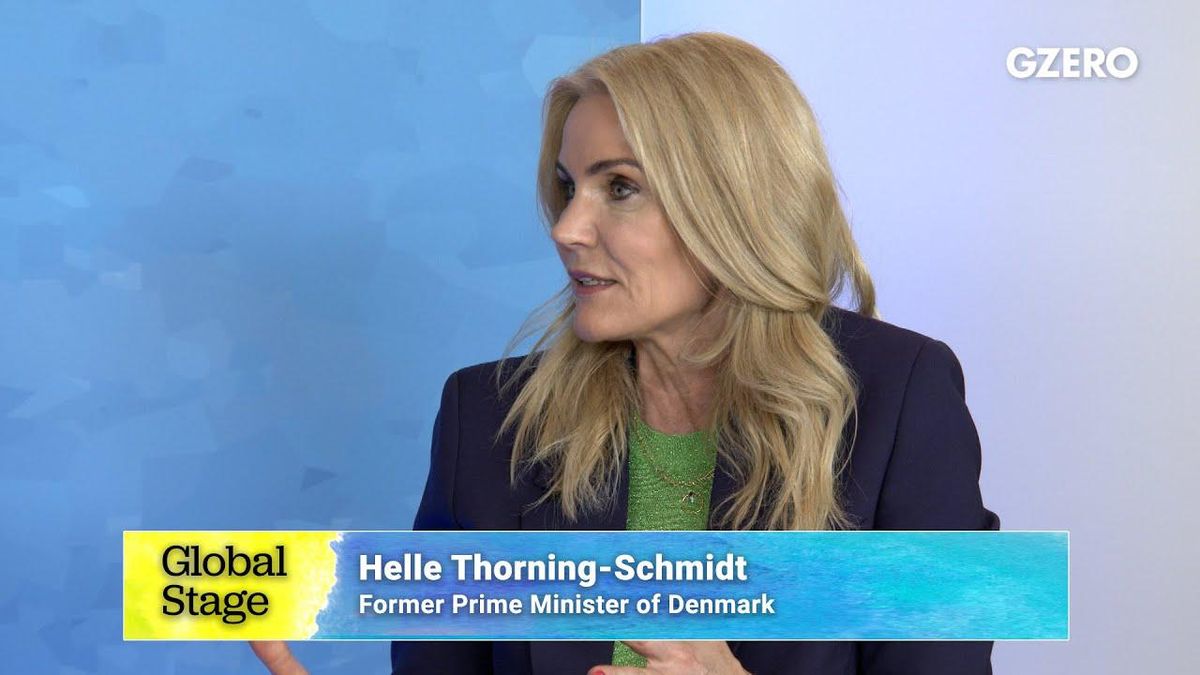Why has Europe been less affected by online misinformation than America has been?
"The democratic debate in Europe is less hostile and less fragmented than in the US," former Danish PM Helle Thorning-Schmidt said at the World Economic Forum in Davos, during a Global Stage livestream discussion hosted by GZERO in partnership with Microsoft. She was joined by Ian Bremmer, president of Eurasia Group and GZERO Media; Brad Smith, president and vice chair of Microsoft; and moderator Nicholas Thompson, CEO of The Atlantic.
Thorning-Schmidt believes that the fragmentation of American politics has led to a vacancy in the middle, which makes US politics "prone to misinformation."
In contrast, in Europe everyone still seeks the middle ground, which is a "huge difference [between] Europe and the US right now."
Watch more of this Global Stage discussion: "Crisis in a digital world"
- Is the world coming apart? Drama at Davos - GZERO Media ›
- Stop misinformation blame game — let's do something about it ... ›
- COVID hypocrisy & misinformation - GZERO Media ›
- Elon Musk to buy Twitter: will misinformation thrive? - GZERO Media ›
- Moisés Naim: With inflation & low trust in democracy, Latin America faces perfect storm for nasty politics - GZERO Media ›
- How social media harms democracy - GZERO Media ›

















